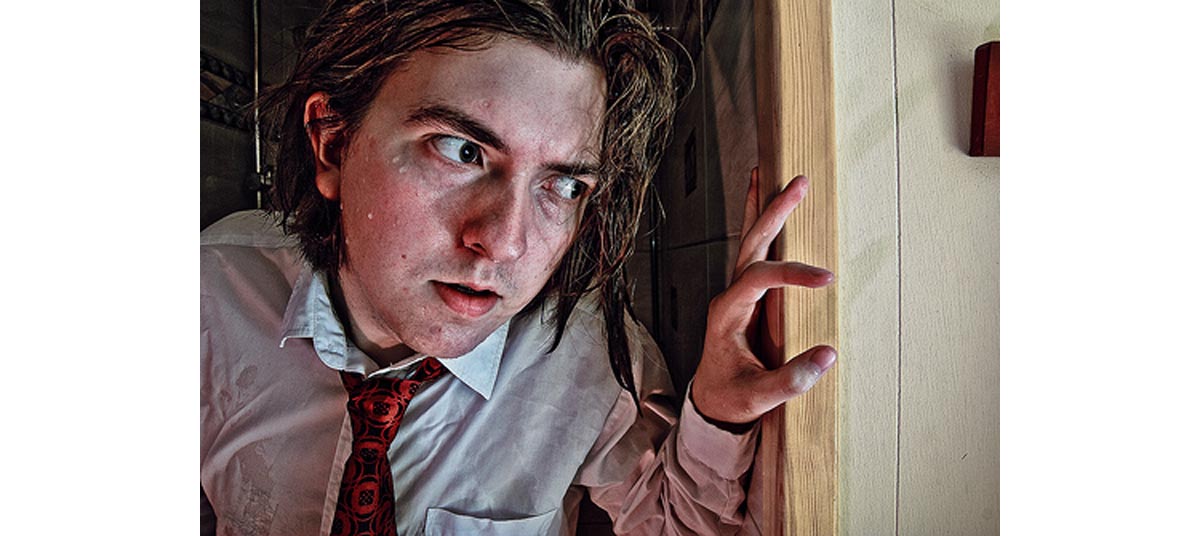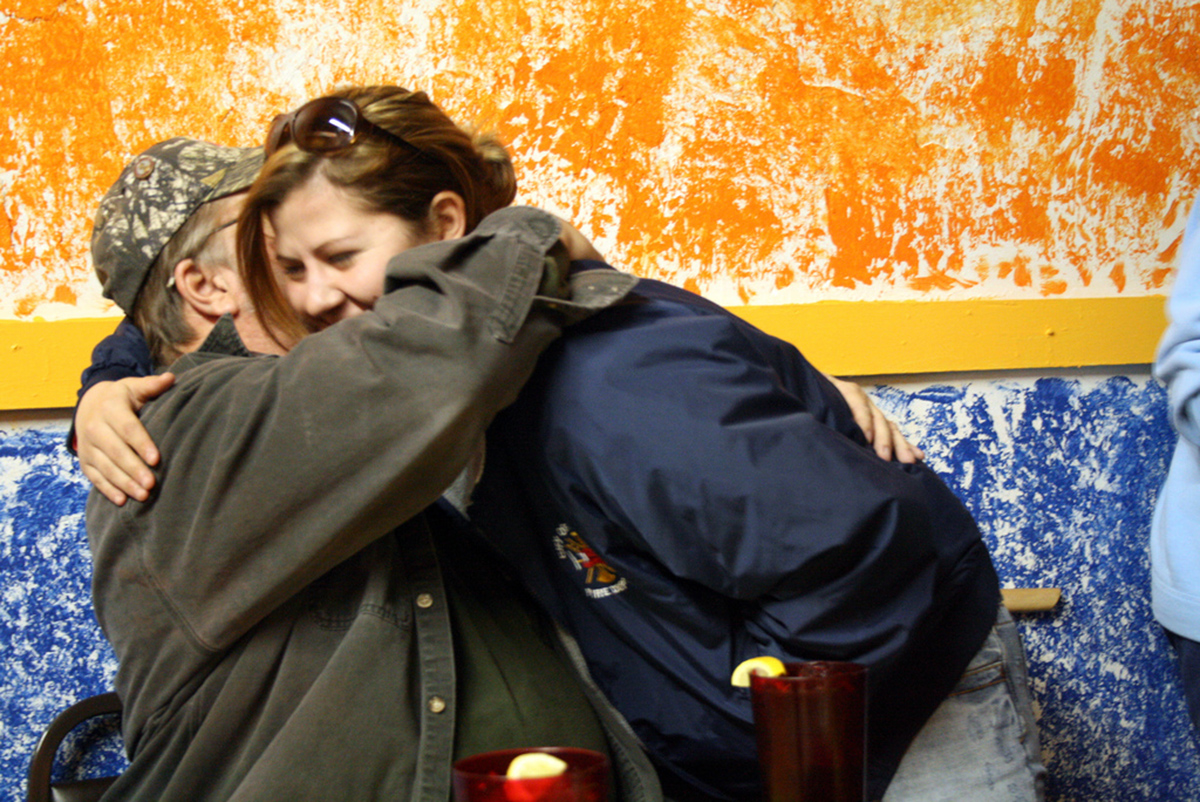Mental health issues still come with a society-imposed stigma, and few people like to be told that they should see a therapist. When a loved-one — a partner, parent, sibling, other relative, or friend — is suffering from delusions and paranoia, it is particularly hard to broach the subject with them. While you may be desperate to tell them they need help, this is not necessarily the best course of action either.

Delusions are beliefs or thoughts that have no basis in reality. Paranoia involves delusions that convince the sufferer that others are conspiring against them. While it is impossible for laypeople to stick a particular diagnosis on a loved-one, paranoid delusions are often easy to spot.
"My neighbors are bullying me," Kathryn's sister told her. Always the protective older sister, Kathryn was mad and went to talk to the neighbors, who said they had no idea what she was talking about. The situation rapidly got worse. Kathryn's sister said that she heard the neighbors through the thin connective walls, and that they planned to poison her dog. When she added that her coworkers knew the neighbors and were bullying her as well, Kathryn started to have doubts.
Kathryn's sister moved because of the bullying neighbors, only to "discover" that the new neighbors knew the old ones, and the coworkers. When her sister heard her new neighbors talk about killing the dog too, she went out and yelled at them in the middle of the night — and called Kathryn for help.
At this point, Kathryn decided to confront her sister. "I think you are hearing things and are paranoid. You need professional help." This statement, with which Kathryn tried to help her sister, destroyed their relationship. They didn't speak for nearly a decade, because her sister felt betrayed and thought her own sibling might just be in on the conspiracy.
Paranoid delusions come in many forms, but this story does show that confronting the sufferer might not be the best idea. Remember that paranoid delusions seem completely real to those experiencing them. What can you do, then, if a loved-one is struggling with them?
Talking To Loved-Ones With Paranoid Delusions
Paranoid delusions can make life terribly lonely for the sufferer, who is bound to systematically weed out any people who look like they are "in on the conspiracy". You might think that it's obvious that your loved-one is deluded, but the things they are experiencing are very real indeed to them. They may hear things, see things, and get signs — just the way you hear things, see things, and get signs such as non-verbal communication.
You can:
- Listen carefully and emphatically.
- Acknowledge the sufferer's feelings, without saying you believe the delusions. Use neutral statements such as "that must be so frightening", and "I can see this is causing you lots of stress and anxiety".
- Do not either reinforce deluded beliefs by saying you agree, or say that you think your loved-one is deluded or crazy. Do try to challenge the beliefs indirectly by asking if they are absolutely sure.
- Though this approach has risks, you may decide to ask the loved-one to look for evidence of a conspiracy. In some cases, this could lead the person to the conclusion that they were mistaken.
- Try to convince the sufferer they are not in danger.
You could safely say that you are sure the whole situation is terribly frightening and stressful, and that talking about it may help. You might also say that you know that your loved-one thinks coworkers are trying to get them dismissed, while adding that you are not sure this is actually true — or that you realize they feel someone is following them, but that you think it could be possible they just cross paths with your loved-one often because they happen to live nearby.
See Also: Inside Bipolar Mind
It is incredibly tricky to keep your loved-one's trust without saying that you believe them, but try your hardest not to do that because doing so could reinforce their belief they are right. Never laugh at your loved-one, ridicule them, or say they are crazy, though. That will not do any good. Asking them to give detailed accounts of what is happening, and continuously asking for evidence, may sometimes be helpful.
An example of this is saying: "I know you think the police is following you. You are a law-abiding citizen, so why would they be doing that? And what could they do to you anyway, if you are not breaking any laws?"
Getting Your Loved One To Seek Help
Professional assistance is the one thing a person with paranoid delusions will benefit most from, but also something they are unlikely to seek. Early treatment is going to be much easier than treatment after years of suffering delusions, but just how do you get a paranoid person — suspicious by definition, and often suspicious of authority figures in particular — to see a psychologist or psychiatrist? The answer, unfortunately, is all too often "with great difficulty or not at all".

When your loved-one tells you about their delusions, you could attempt to say that their experiences sound dreadfully stressful and that is is very difficult to come up with the right action plan on how to deal with all of this.
Since paranoid delusions always involve people, people can be difficult to deal with, and therapists know a lot about human behavior, you could use that as a way in. "When I had trouble with my boss, I sought therapy. My therapist advised me on how to best approach him, and that was truly helpful to me," you could say. Or: "Sometimes, it is possible to de-escalate scary situations. But it can be hard to know exactly how to do that. I think I'd talk to a therapist." Do keep in mind that this approach could backfire, and tread carefully.
When can you force a loved-one to get treatment? Having someone detained to receive mental health treatment is almost impossible in most countries. In most cases, it can only happen if you are close kin and can demonstrate that the person is a danger to themselves or society. Sometimes, the situation is so serious that taking this step is the right approach. Do realize that the sufferer will most likely think you betrayed them, and that your relationship may never be restored even after treatment.
See Also: Are Truly Almost Half Of Europeans Mentally Ill?
Joining A Support Group — For You
You may or may not get your loved-one to seek treatment. What you can definitely do is get treatment yourself. You may benefit from therapy to discuss the stress and fear your loved-one's paranoia is causing you, and to ask for advice on how to deal with the person. Joining a support group for friends and relatives of people with paranoid delusions can also be helpful. These support groups may be available in your area, but online discussion boards are another option for those who don't have access to local support.
- Photo courtesy of Sebastian Fritzon by Flickr : www.flickr.com/photos/sebastianfritzon/2834967950
- Photo courtesy of Lindsey Turner by Flickr : www.flickr.com/photos/theogeo/3321132111#

